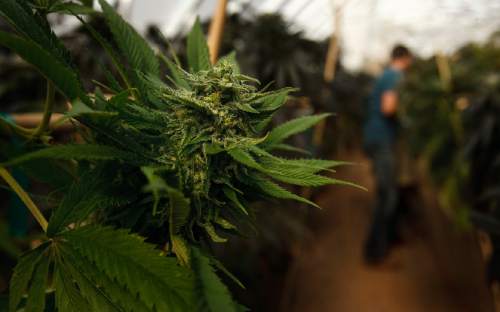This is an archived article that was published on sltrib.com in 2016, and information in the article may be outdated. It is provided only for personal research purposes and may not be reprinted.
In a more minor part of legislative debates on medical marijuana, the Senate passed SCR11 on Tuesday calling for Congress to reclassify marijuana to allow more research into its possible medical uses.
It passed on a 25-0 vote, and now goes to the House.
Its sponsor, Rep. Brian Shiozawa, R-Cottonwood Heights, an emergency room doctor, noted that marijuana is a federal "Schedule 1" drug, meaning it is viewed as having no accepted medical use, is considered unsafe and has a high potential for abuse. Other Schedule I drugs include heroin, LSD and Ecstasy.
He said that means it is a Class 1 felony to even conduct legitimate scientific research on marijuana.
His resolution calls on Congress to reclassify marijuana as a "Schedule II" drug, which would allow medical research on it — and potential prescription medical use after research and trials. Other Schedule II drugs include morphine and oxycodone.
Dr. Edward Clark, head of pediatrics at the University of Utah, earlier told a hearing that it already has some waivers to Schedule I restrictions to allow research with hemp oil to treat epilepsy. He said a change to Schedule II could allow much wider research, such as pain treatment.
The action comes as the Legislature is debating two other medical marijuana bills.
One, SB73 by Sen. Mark Madsen, R-Saratoga Springs, would allow use even of the hallucinogenic compound, THC. The LDS Church originally opposed it, but softened its criticism this week.
Madsen delayed debate of his bill in the Senate on Tuesday, saying he wants more time to talk to colleagues about it. It received preliminary approval on a close 15-13 vote on Monday, and still faces a final Senate vote.
The other bill, SB89, by Sen. Evan Vickers, R-Cedar City, allows use of products without THC. The Senate passed it 18-8 on Monday and sent it to the House



